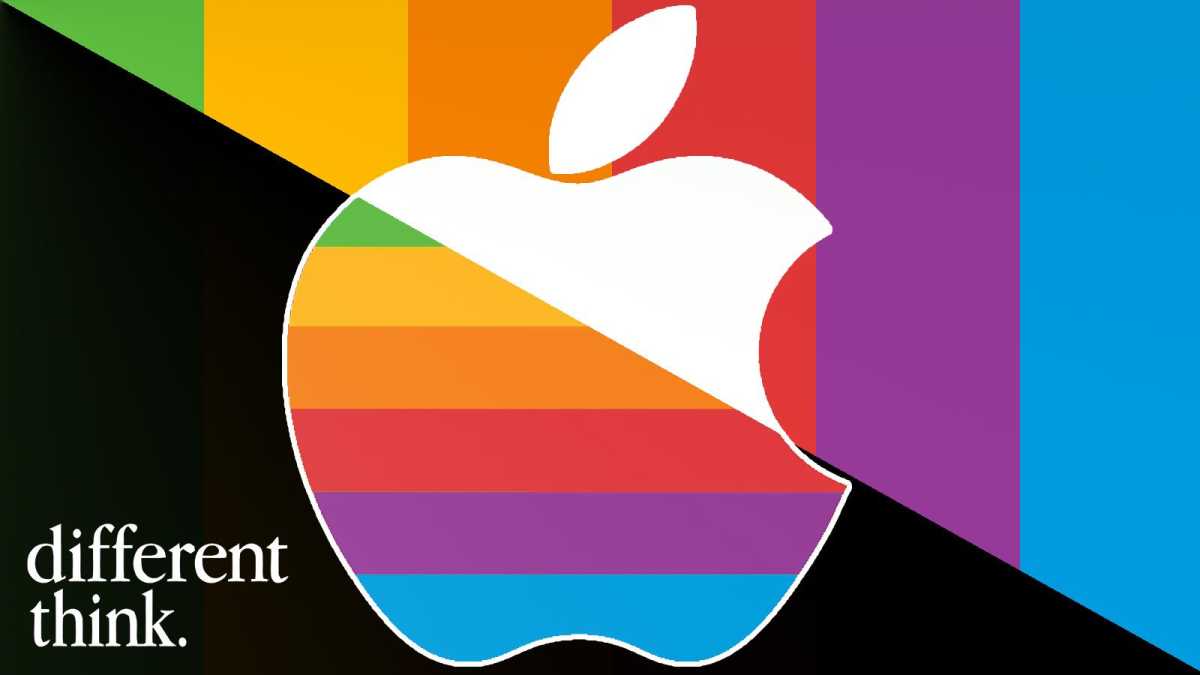The creative arts have long had a troubled relationship with money. Somewhere along the line, you have to suck up to somebody with a checkbook, whether it’s the local banking dynasty or a bunch of Patreon subscribers. Most artists don’t have the power to tell their backers, as Ben Affleck does in “Shakespeare In Love,” “You may remain, as long as you remain silent. Pay attention, and you will see how genius creates a legend.”
Affleck’s financier timidly refers to himself as “the money,” but such reticence is rare in real life. Most patrons of the arts use the exercise to publicize themselves, promote their favorite causes, or artwash their past. If they didn’t stand to benefit, why would they cough up the cash in the first place? For disinterested love of the arts? Get out of here.
This brings us to Apple, whose angle when it comes to financing film-making seems more straightforward: It provides the funds for movies and TV shows to be made, then in return gets to distribute them exclusively via its subscription-based TV+ streaming service. In-house Apple Studios has a ton of shows and movies planned, but only a handful have been released (“The Last Days of Ptolemy Grey” is the most notable) and none of them have been up for awards yet.
As it stands, Apple, like many other distributors, pays money in order to earn money. And the better the movies and shows are, the more people subscribe and the more money it makes, so the company should be incentivized to keep out of the way and leave the experts to do their work to the best of their ability. This all sounds fine.
 https://b2c-contenthub.com/wp-content/uploads/2022/01/different_think.jpg?resize=300%2C168&quality=50&strip=all 300w, https://b2c-contenthub.com/wp-content/uploads/2022/01/different_think.jpg?resize=768%2C432&quality=50&strip=all 768w, https://b2c-contenthub.com/wp-content/uploads/2022/01/different_think.jpg?resize=1200%2C675&quality=50&strip=all 1200w, https://b2c-contenthub.com/wp-content/uploads/2022/01/different_think.jpg?resize=1536%2C864&quality=50&strip=all 1536w, https://b2c-contenthub.com/wp-content/uploads/2022/01/different_think.jpg?resize=1240%2C697&quality=50&strip=all 1240w, https://b2c-contenthub.com/wp-content/uploads/2022/01/different_think.jpg?resize=150%2C84&quality=50&strip=all 150w" width="1200" height="675" sizes="(max-width: 1200px) 100vw, 1200px" />
https://b2c-contenthub.com/wp-content/uploads/2022/01/different_think.jpg?resize=300%2C168&quality=50&strip=all 300w, https://b2c-contenthub.com/wp-content/uploads/2022/01/different_think.jpg?resize=768%2C432&quality=50&strip=all 768w, https://b2c-contenthub.com/wp-content/uploads/2022/01/different_think.jpg?resize=1200%2C675&quality=50&strip=all 1200w, https://b2c-contenthub.com/wp-content/uploads/2022/01/different_think.jpg?resize=1536%2C864&quality=50&strip=all 1536w, https://b2c-contenthub.com/wp-content/uploads/2022/01/different_think.jpg?resize=1240%2C697&quality=50&strip=all 1240w, https://b2c-contenthub.com/wp-content/uploads/2022/01/different_think.jpg?resize=150%2C84&quality=50&strip=all 150w" width="1200" height="675" sizes="(max-width: 1200px) 100vw, 1200px" />IDG
Of course, it isn’t quite that simple. As well as a strategic business move, Apple’s investment in TV and film is a prestige play: just like the Medicis, the company knows that putting itself close to art is an effective way to burnish its brand. (Okay, the Medicis might not have put it in those words. But they would have understood.) Apple depends on being perceived as a hip cultural force. Backing an Oscar-winning film is an excellent way to sell more phones.
Which is why I’ve been growing mildly irritated–only mildly, not enough to get up and slap someone–by the number of references to “CODA” being the first Academy Award for Best Picture victory for a streaming service, namely Apple TV+. As pure corporate news, I suppose that factoid is somewhat interesting. But when it comes to artistic credit, which is what the Oscars are supposed to be about, how much can Apple take?
Take “Ted Lasso.” While that award-winning show isn’t an Apple Studios production either, Apple TV+ gave the show life with a full series order back in October 2019 based on a pilot written by Jason Sudeikis and Bill Lawrence. And according to Variety, the show had been in the works at Apple TV+ for more than a year before it was green-lit, so Apple clearly played a major role in the finished product. When “Ted Lasso” is attributed to Apple, the company can take credit both as a financier and creative consultant.
More obviously, Apple had nothing to do with making “CODA,” only with distributing it. The film was complete long before Tim Cook came along. Apple bought the rights two days after its world premiere at the 2021 Sundance Festival. For this project at least, Apple acted as a film reseller, not a filmmaker.
 https://b2c-contenthub.com/wp-content/uploads/2021/03/Ted-Lasso-photo.jpg?resize=300%2C150&quality=50&strip=all 300w, https://b2c-contenthub.com/wp-content/uploads/2021/03/Ted-Lasso-photo.jpg?resize=768%2C383&quality=50&strip=all 768w, https://b2c-contenthub.com/wp-content/uploads/2021/03/Ted-Lasso-photo.jpg?resize=1200%2C598&quality=50&strip=all 1200w, https://b2c-contenthub.com/wp-content/uploads/2021/03/Ted-Lasso-photo.jpg?resize=1536%2C766&quality=50&strip=all 1536w, https://b2c-contenthub.com/wp-content/uploads/2021/03/Ted-Lasso-photo.jpg?resize=2048%2C1021&quality=50&strip=all 2048w" width="1200" height="598" sizes="(max-width: 1200px) 100vw, 1200px" />
https://b2c-contenthub.com/wp-content/uploads/2021/03/Ted-Lasso-photo.jpg?resize=300%2C150&quality=50&strip=all 300w, https://b2c-contenthub.com/wp-content/uploads/2021/03/Ted-Lasso-photo.jpg?resize=768%2C383&quality=50&strip=all 768w, https://b2c-contenthub.com/wp-content/uploads/2021/03/Ted-Lasso-photo.jpg?resize=1200%2C598&quality=50&strip=all 1200w, https://b2c-contenthub.com/wp-content/uploads/2021/03/Ted-Lasso-photo.jpg?resize=1536%2C766&quality=50&strip=all 1536w, https://b2c-contenthub.com/wp-content/uploads/2021/03/Ted-Lasso-photo.jpg?resize=2048%2C1021&quality=50&strip=all 2048w" width="1200" height="598" sizes="(max-width: 1200px) 100vw, 1200px" />Apple
But there’s a deeper issue here, which is that the financial backing of a film needs as far as possible to be kept separate from the artistic decisions made while making it. And the more involved the money gets with those decisions, the more compromised the result will be. If a backer provides the money and keeps in the background–like Tom Wilkinson’s moneylender after Ben Affleck has finished shouting at him–do they deserve to be credited beyond the appropriate thanks for their support?
The Apple TV+ project is an exciting one that is beginning to find its feet. (“Severance” is absolutely superb, and you should definitely watch that.) But the credit for “CODA”‘s Oscar triumph–which was historic in respects wholly unrelated to streaming technology–isn’t just Apple’s. It belongs to a slew of people who poured their passion into the project before Apple came along. Apple deserves credit for believing in it, pushing it to a wide audience, and releasing it with “open” captions that show not just dialogue, but also sounds and music as well. But the creative process was completed long before Apple came along.
Films don’t exist to promote tech companies. And you’re not Shakespeare, you’re the money.
Update 5:00pm ET: Added context about Apple’s role in the “CODA” release.





